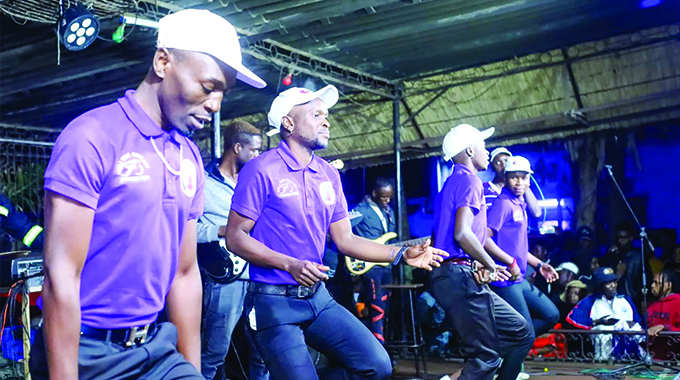By Luckson Ndlovu
Music and dance have always been central to African societies. From the euphoric beats that celebrate life’s milestones to the somber rhythms that accompany grief, music is deeply ingrained in our cultural fabric.
Yet, like every aspect of society, music evolves, adapting to the times and the people who embrace it. One such evolution is the rise of the Rhumba/Tshibilika genre, which has captivated audiences across Southern Africa for nearly four decades. However, its emergence, particularly within the AbeThwakazi community, has sparked polarizing debates that oscillate between admiration and disdain.
The Controversial Origins of Rhumba/Tshibilika
The roots of Rhumba/Tshibilika in Zimbabwe trace back to the late 1970s and early 1980s. Liberation fighters returning from neighboring countries after the Rhodesian Bush War brought back more than just stories of resistance—they brought with them a new musical style. Influenced by the music they encountered in Zambia, Angola, and beyond, these freedom fighters introduced Rhumba/Tshibilika to Zimbabwean audiences.
Initially, the genre gained traction among liberation war veterans who transitioned into civilian life as performers. Their art was a celebration of freedom, an expression of post-war euphoria. However, due to the limited media reach at the time, the genre’s popularity spread slowly, with its impact felt unevenly across the country.
A Painful Association: The Gukurahundi Legacy
For the AbeThwakazi community, the introduction of Rhumba/Tshibilika coincided with a dark chapter in history: Gukurahundi. This brutal period in the 1980s left scars that remain unhealed. During this time, communities in Matabeleland and the Midlands were subjected to atrocities, and disturbingly, Rhumba/Tshibilika was often the soundtrack to their suffering.
One particular song, Mai vaDhikondo, became infamous. Survivors recount how they were forced to sing and dance to this track during mass executions and burials. This harrowing sassociation deeply tainted the genre for many in the AbeThwakazi community, branding it as the “music of Gukurahundi.” Even as artists like Solomon Skuza and Ndux Malaxemerged to redefine the genre within the region, the damage had already been done. For many hardliners, the melodies of Rhumba/Tshibilika remain intertwined with memories of trauma.
The Evolution of African Genres: A Case for Rhumba/Tshibilika
Music has always transcended borders and historical wounds, evolving to reflect shared experiences across regions. For instance, the journey of Maskandi music offers a powerful case in point. Maskandi, now a staple of South African music, traces its roots back to Zimbabwe, where it was first sung under the banner of uMgandayi. George Sibanda, one of its pioneers, introduced the genre in then-Rhodesia.
The influence of Zimbabwe’s early Maskandi paved the way for Josaya Hadebe to bring it to South Africa, where it evolved further. Icons such as John Bhengu, famously known as Phuzushukela, refined and perfected the genre into what we now recognize as Maskandi. This cross-pollination of musical styles exemplifies how genres can transcend cultural and historical divides, enriching the broader Southern African musical tapestry. Similarly, Rhumba/Tshibilika has the potential to evolve into a unifying art form, fostering cultural exchange and appreciation.
The Genre’s Resurgence Among Youth
For younger generations, born after the Gukurahundi era, Rhumba/Tshibilika is stripped of its historical baggage. These youths, unencumbered by the painful memories of their elders, see the genre as a source of joy and identity. They embrace its infectious rhythms and lyrical storytelling, often describing it as more captivating than South Africa’s amapiano. “Irhumbaisidlula amapiano ngobumnandi”, they sing.
This generational divide is stark. While elders remain wary of the genre’s painful associations, young AbeThwakazi enthusiasts argue that music should evolve beyond its historical context. For them, Rhumba/Tshibilika is not a relic of oppression but a vibrant part of their cultural identity.
Crossing Borders and Breaking Barriers
Beyond Zimbabwe’s borders, Rhumba/Tshibilika continues to gain popularity, particularly in South Africa. In Limpopo Province, artists like Vhovho have adopted and adapted the genre, introducing it to new audiences. Social media platforms, especially TikTok, have further amplified its reach. In 2024, South African influencers propelled songs like Tshinga’s Istulokangisasifuni to viral fame, demonstrating the genre’s ability to transcend cultural and national boundaries.
This regional embrace of Rhumba/Tshibilika underscores its evolution from a niche musical style to a Southern African phenomenon. For AbeThwakazi artists, this represents an opportunity to gain recognition and financial support, as their music finds new fans across the continent.
A Crossroads for AbeThwakazi
For cultural purists within the AbeThwakazi community, the rise of Rhumba/Tshibilikapresents a dilemma. Should the genre be embraced as a legitimate form of artistic expression, or should its historical associations render it unwelcome?
On one hand, the genre provides an economic lifeline for many artists and offers a platform to showcase the region’s rich cultural heritage. On the other hand, its painful history remains a source of contention, particularly for those who lived through the Gukurahundi era.
Moving Forward
As Rhumba/Tshibilika continues to captivate audiences across Southern Africa, it is crucial for communities to engage in meaningful dialogue about its place in society. For the AbeThwakazi community, this means confronting the genre’s complex legacy while recognizing its potential to unite and inspire future generations.
Music, like culture, is never static. It evolves, adapts, and ultimately reflects the society from which it emerges. The rise of Rhumba/Tshibilika is neither a mere fad nor a purely cultural revolution—it is a testament to the resilience and creativity of Southern African communities. For AbeThwakazi, the challenge lies in reconciling the past with the present, ensuring that the genre becomes a bridge rather than a barrier.
As we have seen with Maskandi, music can thrive when it transcends its origins, adapting to the cultural dynamics of its time. Similarly, Rhumba/Tshibilika has the potential to heal, inspire, and entertain if it is reclaimed and redefined by the communities it touches. The question is not whether to embrace or reject the genre but how to shape its future in a way that honors the past while paving the way for progress.
Mthwakazi kaNdaba, lina ondlela zimhophe, silifisela ukhisimusi omuhle kanye lomyaka ka2025 olempumelelo. Konke kukhanye, kube kuhle. Bantwana bezinkanyezi!

